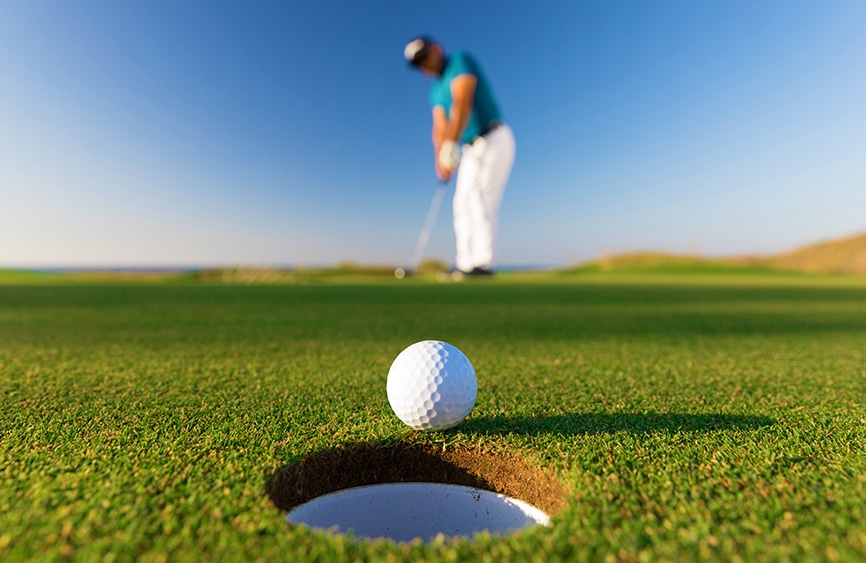
5 Easy Tips to Prevent Back Pain from Golfing
Outdoor sports, like golf, are becoming more popular than ever. Whether people have more time on their hands, or are venturing out for new socially distant hobbies — golf is quickly becoming a common weekly activity. The more serious golfer is getting more rounds in, the golfer who had no time in their schedule is finally getting back on the green, and for some it’s their first time ever. Because of this jump in participation, it is no surprise that more than 36% of novice golfers, and more than 63% of serious golfers, are playing with an injury or pain related to the low back.
Why do Golfers Experience Back Pain?
The most important aspect of the sport is actually the leading contributing factor for this common complaint — the golf swing. The repetitive motion and asymmetric nature of a golf swing places added stress on the lower back. Along with those elements, there are three components that negatively impact a golf swing, thus leading to back pain:
Forgetting to Stretch & Warm Up
Golf is a sport; and like any other sport, you need to stretch. Warming up prior to playing helps prime the body for physical activity; allowing better blood flow to your muscles and loosening of your joints.
‘Over-swinging’
In this position, the spine is twisted and the body’s weight is distributed awkwardly, creating a choppy swing. Failure to have a smooth, natural swing results in increased strain on your lower back, often leading to back pain from golf
swings.
Poor Posture
Rounding the back, extending the lower back, or bending to the side before a swing can lead to weak muscles due to over-activation or tightness in the lower back. Furthermore, golfers are typically in this position for several hours throughout their game, fatiguing the back muscles and leaving them susceptible to injury.
5 Easy Tips to Prevent or Reduce Back Pain Due to Golfing
Warm-Up Properly
Studies have shown that golfers who have stiffer back rotation and less joint range of motion have more back pain. This is because stiff players are forcing their bodies to move past the comfort zone, rather than using smooth, fluid motions. By stretching and warming up correctly, you can decrease your risk of injury and alleviate joint stiffness. Some of the best stretches for golfers are:
- Over the Head Shoulder Stretch
- Chest Opener With Forward Bend Stretch
- Standing Quad Stretch
- Low-lunge Hip Flexor Stretch
- Standing IT Band Stretch
Improve Your Swing Mechanics
Don’t try to hit as hard as possible when you step up to the tee. Not only does this cause erratic ball placement, but the unnatural effort increases the chance of over exerting your back and causing injury.
Maintain Neutral Spine Positioning
When leaning over the ball before swinging, keep your spine in its relaxed position of comfort and bend with your hips and knees.
Strengthen Your Core
Golf requires serious stamina. The majority of back injuries from swinging are due to overuse and lack of control through the swing. The stronger your core, the more you are able to have a composed swing repetitively. Be sure to exercise and strengthen your hips, glutes, lats, and obliques — The core is more than abs!
Don’t Try to Play Like a Pro
If you are relatively new to golf, don’t start out by playing 36 holes on your first round. This can cause extreme soreness and cause you to injure yourself by overexerting. Assess your capability and the amount of time you can comfortably play, and go from there.
If you find yourself in pain after finishing a round, the physicians at VSI, formerly known as Virginia Spine Institute, are here to help you with the most comprehensive care possible. We will create a customized treatment plan designed to alleviate your pain, and get you back outside to enjoy this year’s summer sport.
Topics covered
About the Author
Featured Resources
Insights to Achieve a Pain-Free Life



